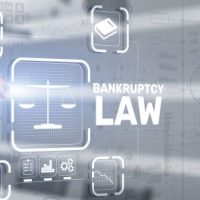What Is Chapter 7 And How Does It Work?

The current combination of high consumer debt, high inflation, and high interest rates is enough to push any family’s ability to pay monthly bills to the breaking point. If unsecured debts, like credit cards and medical bills, are the primary problem, Chapter 7 is an excellent solution. As outlined below, Chapter 7 eliminates such debts in as little as nine months. Additionally, most people get to keep most of their assets. Illinois’ formal and informal bankruptcy exemptions are among the most generous in the country.
Because money is so tight for many debtors, they’re often tempted to work with a cut-rate bankruptcy petition preparer or represent themselves in court. These options may seem like good ideas at the time, but they always turn out badly in the long term. Only a Chicago bankruptcy attorney maximizes the fresh start which the Bankruptcy Code guarantees. In fact, debtors without lawyers often wind up back in bankruptcy court. Our Chicago bankruptcy lawyers don’t rely on repeat business. We only want to work with you once.
Qualifying for Chapter 7
Despite the 2005 law change, most people qualify for Chapter 7 bankruptcy. Quite frankly, if a family doesn’t qualify based on its income, that family probably doesn’t need to file Chapter 7. Other legal options are available.
Before we get to the financial qualifications, let’s discuss some other basic formal and informal qualifications.
Formally, all Chapter 7 debtors must complete a pre-filing debt counseling class and a post-filing budgeting class. These brief and cheap classes are usually available online. Informally, the debtor’s monthly expenses usually must exceed the debtor’s monthly income. If that’s not the case, the trustee (person who manages a bankruptcy for a judge) may ask unwelcome questions at the 341 meeting. More on that below.
Financially, the family’s income must be below the statewide average income for that family size. In Illinois, for a family of four, the annual income cutoff is $113,000, as of November 1, 2022.
Filing the Case
When Monopoly players file bankruptcy, they lose all their assets. When real people file real bankruptcies, they keep most of their property, such as:
- House,
- Motor vehicle,
- Retirement account,
- Personal property, and
- Government benefits.
Informal exemptions are available as well. Assume Rachel has $2,000 in a checking account when she files bankruptcy. Cash is normally a nonexempt asset. When the trustee files a motion for turnover demanding that Rachel hand over the money, she has spent the funds on living expenses. Since the money is gone, ownership is moot, which means the judge cannot rule on this dispute.
Moreover, when debtors file their voluntary Chapter 7 petitions, the Automatic Stay takes immediate effect. Section 362 of the Bankruptcy Code prohibits repossession, foreclosure, and most other creditor adverse actions. Typically, the Automatic Stay remains in effect until the judge closes the bankruptcy.
The 341 Meeting
Judges usually close bankruptcies and discharge unsecured debts without asking any questions, if all goes well at the 341 meeting with the trustee.
Before this meeting, the trustee usually requests tax returns, insurance paperwork, and other documents. At this meeting, the trustee verifies the debtor’s identity and looks for red flags. Assuming the debtor provides proper identification and there are no red flags, or at least no red flags that a Chicago bankruptcy lawyer cannot explain, the trustee usually makes a discharge recommendation.
“Discharge” means the judge eliminates the legal obligation to repay most unsecured debts. The collateral consequences of that debt, such as apre-bankruptcy property or credit lien, remain.
Reach Out to a Dedicated Cook County Lawyer
No matter what kind of financial problem you are having, bankruptcy could be a way out. For a free consultation with an experienced bankruptcy attorney in Chicago, contact the Bentz Holguin Law Firm, LLC. Convenient payment plans are available.
Source:
uscourts.gov/services-forms/bankruptcy/bankruptcy-basics/chapter-7-bankruptcy-basics


